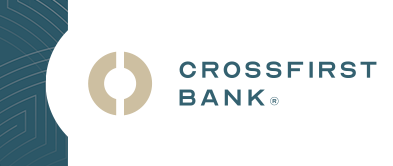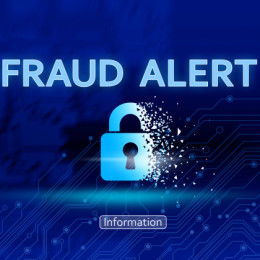
In an uncertain world where disasters can strike without warning, having emergency savings and safeguarding your sensitive financial documents is crucial to ensuring your financial security and peace of mind. At CrossFirst Bank, we recognize the importance of being prepared and proactive, especially when it comes to your valuable assets. This article outlines key strategies to help as you prepare for emergencies such as job loss, medical issues, fires, tornadoes, earthquakes, floods, and other unforeseen events.
One crucial aspect of preparing for the unexpected is having emergency savings in place. Your savings provides an important safety net. Experts recommend having at least three to six months' worth of living expenses saved initially, with a long-term goal of building it up to cover a year's worth of expenses. Having a financial cushion can alleviate stress and allow you to focus on recovering from the emergency without worrying about finances. Emergencies can arise at any time and having emergency savings gives you peace of mind knowing that you are prepared for whatever comes your way. Be sure to keep this fund separate from your other accounts to ensure it’s used only for emergencies. Start saving today for a more secure future.
Regarding safeguarding important information, FEMA recommends beginning by gathering all crucial documents, including things like:
Advances in technology provide excellent means to protect important information. For documents that cannot be easily accessed digitally, consider scanning and backing up online. These files can be encrypted and stored in the cloud, ensuring they are safe and retrievable even if physical copies are damaged or lost. While using online solutions, it is important to select reputable providers and to maintain robust security protocols, such as two-factor authentication, to fully safeguard your data from unauthorized access.
Invest in a high-quality, fireproof, and waterproof safe to store originals securely at home. Ensure the safe meets appropriate safety standards to withstand severe conditions. For added security, consider storing copies of critical documents in a safe deposit box at your local bank branch, like those offered at select CrossFirst Bank locations.* Keep in mind the convenience of access and balance it with security when choosing storage solutions.
Changing circumstances necessitate a routine review and update of your documentation. This includes adjusting insurance coverage after purchasing significant assets or updating contact information for beneficiaries. Establishing a schedule to periodically review your documents ensures that in an emergency, you have the most accurate and relevant information readily available.
Ensure all household members understand where documents are stored, how to access them, and the protocols to follow during an emergency. Having a clear communication plan will facilitate effective and smooth execution when the unexpected occurs.
At CrossFirst Bank, we are committed to supporting our clients in safeguarding their assets effectively. Preparing for an emergency empowers you to face challenges with confidence.
* Safe deposit box rental is available at select locations. Contact your nearest location for availability and pricing information.
1. Emergency Savings
One crucial aspect of preparing for the unexpected is having emergency savings in place. Your savings provides an important safety net. Experts recommend having at least three to six months' worth of living expenses saved initially, with a long-term goal of building it up to cover a year's worth of expenses. Having a financial cushion can alleviate stress and allow you to focus on recovering from the emergency without worrying about finances. Emergencies can arise at any time and having emergency savings gives you peace of mind knowing that you are prepared for whatever comes your way. Be sure to keep this fund separate from your other accounts to ensure it’s used only for emergencies. Start saving today for a more secure future.
2. Identify and Organize Important Documents
Regarding safeguarding important information, FEMA recommends beginning by gathering all crucial documents, including things like:
- Passports
- Birth certificates
- Property deeds
- Insurance policies
- Financial statements
- Tax records
- Medical records
Advances in technology provide excellent means to protect important information. For documents that cannot be easily accessed digitally, consider scanning and backing up online. These files can be encrypted and stored in the cloud, ensuring they are safe and retrievable even if physical copies are damaged or lost. While using online solutions, it is important to select reputable providers and to maintain robust security protocols, such as two-factor authentication, to fully safeguard your data from unauthorized access.
3. Choose a Safe Storage Solution
Invest in a high-quality, fireproof, and waterproof safe to store originals securely at home. Ensure the safe meets appropriate safety standards to withstand severe conditions. For added security, consider storing copies of critical documents in a safe deposit box at your local bank branch, like those offered at select CrossFirst Bank locations.* Keep in mind the convenience of access and balance it with security when choosing storage solutions.
4. Regularly Update and Review Your Documentation
Changing circumstances necessitate a routine review and update of your documentation. This includes adjusting insurance coverage after purchasing significant assets or updating contact information for beneficiaries. Establishing a schedule to periodically review your documents ensures that in an emergency, you have the most accurate and relevant information readily available.
5. Educate Family Members
Ensure all household members understand where documents are stored, how to access them, and the protocols to follow during an emergency. Having a clear communication plan will facilitate effective and smooth execution when the unexpected occurs.
At CrossFirst Bank, we are committed to supporting our clients in safeguarding their assets effectively. Preparing for an emergency empowers you to face challenges with confidence.
* Safe deposit box rental is available at select locations. Contact your nearest location for availability and pricing information.
Personal
September 26, 2024 by CrossFirst Bank

